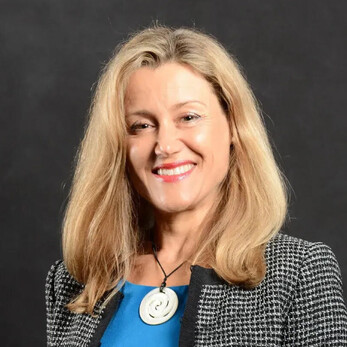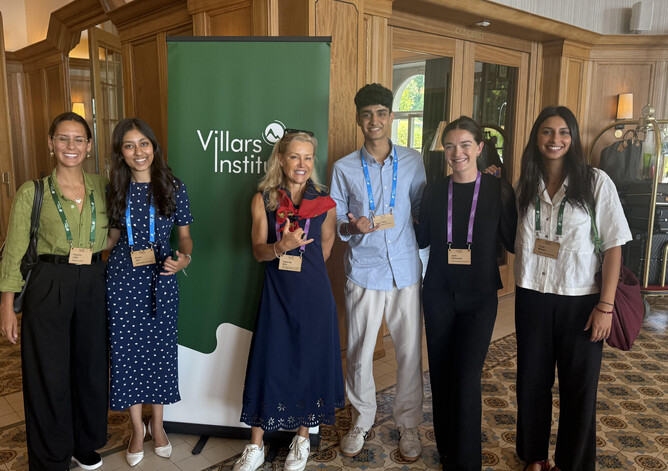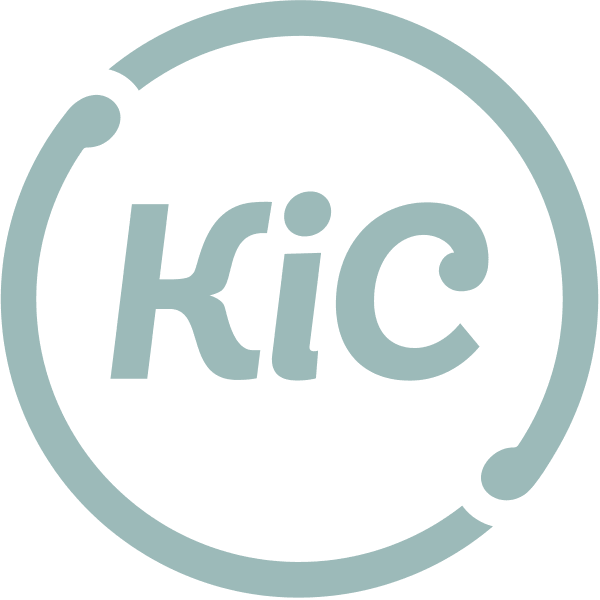Based in Hawaii, Amanda is the Asia-Pacific Executive Director for ASU’s Global Institute of Sustainability and Innovation, and former New Zealand Ambassador to the UN.
Tell us about your current role and where you are in the world.
I wear a couple of hats in my current role: I serve both as Executive Director, Asia Pacific for the Julie Ann Wrigley Global Institute of Sustainability and Innovation; and lead Global Strategic Partnerships for the Wrigley Global Futures Laboratory at Arizona State University (ASU). ASU is the largest public university in the US and ranked number one for innovation the last 10 years in a row, ahead of Stanford and MIT, as well as number one for global impact.
I am based in Hawaii, where I live with my American husband - half way between both our families. Hawaii is a wonderful exemplar of practical climate action spurred by bipartisan policy commitment, with a commitment to net zero greenhouse gas emissions by 2045.
In 2015, Hawaii became the first state in the US to commit to 100% renewable energy. From only 5% renewable energy back then to close to 40% today and annual savings of $2 billion a year, combined with greater energy security and independence, Hawaii’s example has spurred other US states, covering over half the US population, to follow suit (although obviously current political headwinds make this increasingly challenging). I serve on the Blue Planet Alliance global board founded by local philanthropist Henk Rogers (yes, of Tetris fame and the Apple TV movie) who is leading the charge to take this initiative global. So far we have welcomed 37 island delegations to Hawaii to learn more about the practicalities of this approach. I hope New Zealand will soon decide to come! All expenses paid!
What was your journey to becoming involved in the climate sector?
Meeting philanthropist Julie Wrigley at the International Union for the Conservation of Nature global gathering in Hawaii in 2016 was the game changer for me. I was invited as a special guest to East Meets West Philanthropists, a group of US and Chinese billionaires committed to climate action, where I met Julie. The scientific information shared at the event made me realize that, despite having served as New Zealand’s Ambassador to the UN in Geneva while we were negotiating the Sustainable Development Goals, I hadn’t been taking the climate crisis seriously enough. Neither had my fellow ambassadors. I became obsessed with the science-to-policy interface and creating better ways of communicating complex information for non-scientists.
At the Julie Wrigley Global Futures Lab, we now fund Parliaments for the Planet at the Inter-Parliamentary Union, contribute to Climate TRACE (with 66 million data points tracking greenhouse gas emissions) and produce a range of teaching materials targeting policymakers.
Julie’s vision is "just and regenerative global futures, grounded and indigenous wisdoms and leveraging high-tech, deliberately multi stakeholder and transdisciplinary." The Global Futures Lab comprises a wide range of university teaching topics and 30 research centers, ranging from the Center for Negative Carbon Emissions through to Indigenous Wisdoms.
Julie is an environmental lawyer who has provided very generous endowments to a number of US universities to ensure a multiplier impact from a focus on sustainability and climate solutions. For example, thanks to the requirements Julie made as part of her endowments, every student at ASU must complete core coursework in these areas to graduate. It was meeting an engineering student from ASU at a conference I spoke at that made me realize the impact of this initiative. The engineering student told me that he was going to be a completely different kind of engineer from what he had envisaged because of the compulsory coursework he had done. Scaling solar was his new focus.
What's something new that you're working on at the moment?
I am so lucky to be working on an incredible number of projects that I am truly passionate about - probably too many! Two of my favorites are my roles as co-chair of both the New Carbon Economy Consortium - which counts Kiwi enterprises Generate Zero, Carbon Click, and Aspiring Materials as members - and the WE (Women Entrepreneurs) Empower UN SDG challenge.
We find so many innovative enterprises really shifting the dial on climate - for example, Climate Policy Radar in the UK with the climate laws data base of the world; and CarbFix in Iceland which mineralizes CO2 in 3-5 years. Thrilled Kiwi Andy Blair from Upflow was a global awardee in 2023.
We have also just concluded a global project with the Inter-Parliamentary Union, the world‘s oldest multilateral body comprising 183 of the 193 UN member countries, to create “A Parliamentarian’s Global Guide to Climate Change and Climate Solutions” which we will launch at COP30 in Brazil. In our role as co-chair of the Earth League, we coordinate the annual “10 New Insights in Climate Science” which launches every year at COP with UNFCCC boss Simon Stiell.
I serve on a number of global advisory boards and am especially excited by the work of our World Economic Forum Future Agenda Council, chaired by The Nature Conservancy Chief Scientist, Katharine Hayhoe, on the behavioral science of climate and environmental action.
What do you think is the role for New Zealand and New Zealanders in achieving action on climate change?
First, Kiwis in Climate is a fantastic online think tank with an important role to play in sharing critical information and galvanizing action.
More broadly, New Zealand is uniquely positioned to lead on climate action given our early bipartisan commitment to climate action and the fact we were the first country in the world to mandate scope 3 emissions reporting. But that bipartisan commitment appears to be fraying: we need a more informed general population and more robust political will.
I would advocate for New Zealand to:
1) Include a good climate curriculum for all in schools and at university (we can provide content!)
2) Maintain the bipartisan commitment to ambitious Nationally Determined Contributions and policy settings that recognize rather than ignore the positive link between climate action and economic prosperity.
The campaign messaging of newly elected New York City Mayor Mamdani around affordability really resonated:
“Climate and quality of life are not two separate concerns - they are, in fact, one and the same.”
Amanda is Asia Pacific Executive Director for the Julie Ann Wrigley Global Institute of Sustainability and Innovation; Leader of Global Strategic Partnerships for the Wrigley Global Futures Laboratory at Arizona State University; former New Zealand Ambassador to the UN in Geneva.


